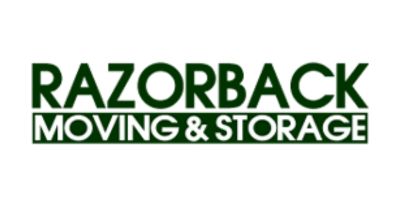When it comes to the price, there’s a lot that goes into that $1,550 to $16,500. Florida to California moving can be expensive, but why? Let’s take a look at what goes into your final price:
1. Distance
The distance of your move is arguably the most important factor. Long distance movers will take a look at your point A and point B, and then they’ll math out how many miles their truck has to travel.
Longer distance means a higher price, so if you’re just moving from Tallahassee to Needles, you’ll pay less than moving from Miami to Redding.
2. Size
We said distance was “arguably the most important factor” because size also plays a big role in determining how much you’ll pay. The physical size of your move (either in pounds or cubic feet) makes a huge difference.
We recommend downsizing as much as possible before shopping for a quote, so you don’t get charged for moving those unwanted items.
3. Packing
Packing services are entirely optional. Should you pay for them? Yeah, if you value your sanity. Packing takes time, energy, and effort. If you’re okay with crying on the floor because you have to go to Home Depot for more cardboard, sure, skip on this one.
But if you’d rather let the pros handle it so you can focus on the rest of your moving prep, definitely shell out the extra cash for packing.
4. Storage
It’s tough mapping out where everything will belong at your new place. It’s even tougher if you’re pressed for time and the moving truck has to go somewhere else in a few hours.
Storage gives you extra space and extra time. It’s much-needed flexibility, and some movers offer 30 days free!
5. Insurance
It’s rare, but accidents happen. Moving companies are actually required to offer a bare minimum level of insurance coverage, but it’s only good for $0.60 per pound. If you think your laptop is worth more than $2.40, you’ll have to pay a little extra for insurance.
NOTE: Most movers only offer full-value insurance if you pay for their packing services, too.
6. Access Fees
It may not be a straight shot from your front door to the street. Every move is different, and in some cases, there’s stairs, long hallways, long driveways, elevators, gates… the list goes on, and all these complications will add to your final price. Make sure you communicate with your movers ahead of time so they know what they’re getting into - and so you know how much you’ll owe them.
7. Shuttle Fees
We don’t like this one, but it’s out of our hands. Most cities don’t allow movers to park their big ol’ semi trucks on their teeny tiny little urban streets. In these cases, you movers will have to park way out in the outskirts and use a smaller box truck to ferry your stuff to your new place. Thank your city council for the extra fee.
8. Specialty Moving
We’ve been in the moving game for over a decade, so we know how moves can get a little wacky. Some people need pianos or pool tables wrapped and packed - no problem.
Some people need vintage motorcycles winched out the window, or custom crating for their modern art - again, no problem. Just expect an extra fee for all of the above.
9. Gratuity
This one isn’t included in your actual quote, but we thought we’d include it anyway. Moving is hard work, and tipping is expected. Don’t be a cheapskate. 15% to 20% of the total cost of your move, to be divided up between all of your movers.




